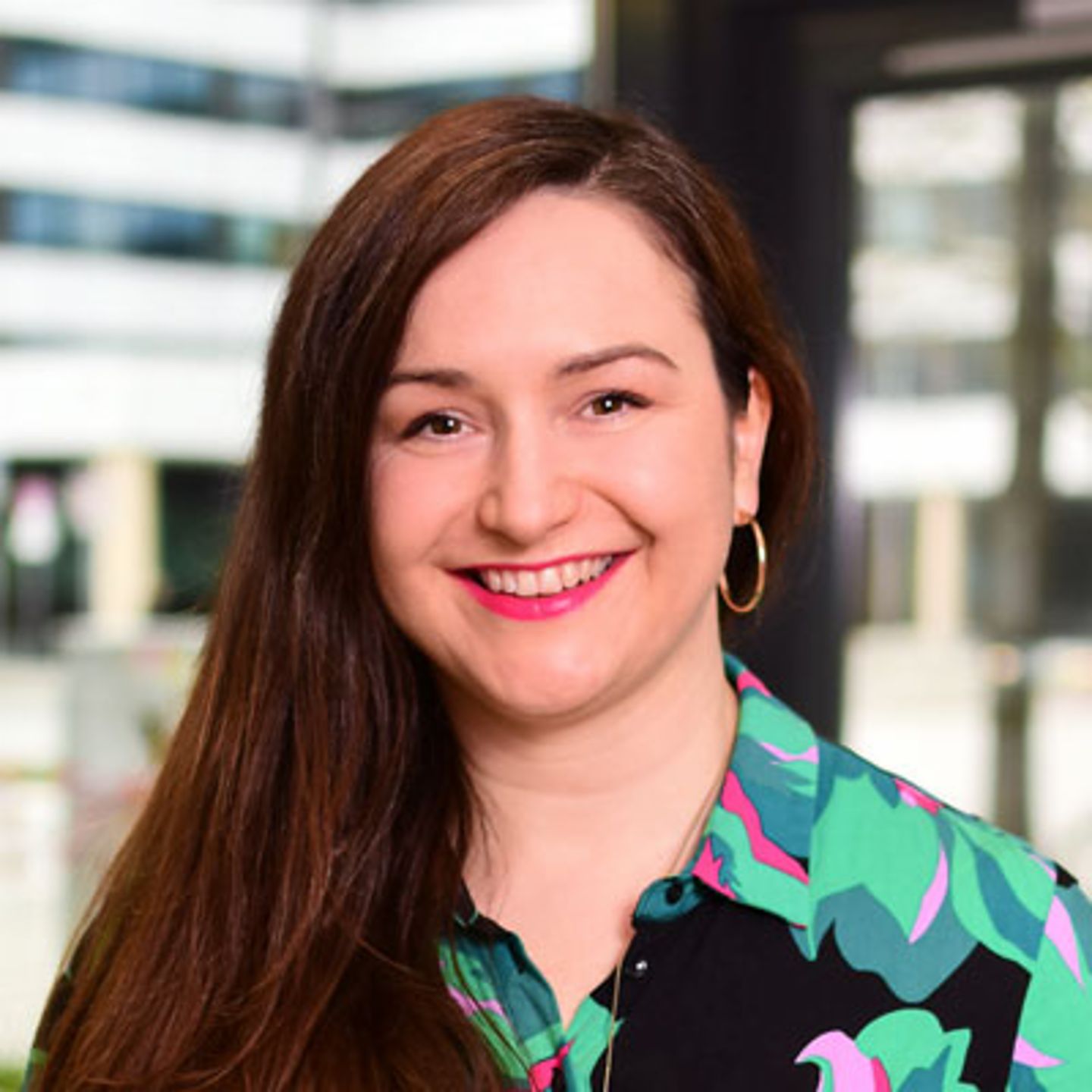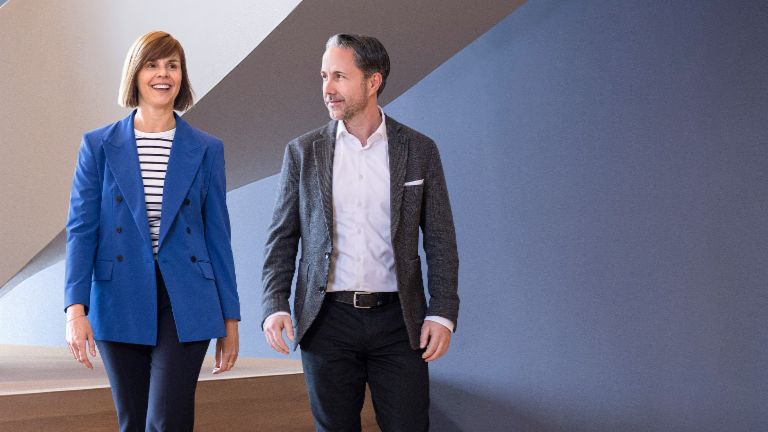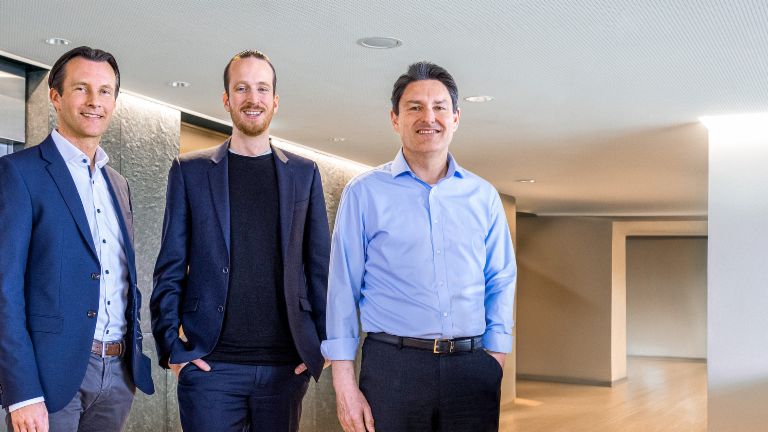Diversity drives success: “not (just) a women’s issue”
Diverse teams are more successful. EOS employees Sarah Akbari and Roxana Herfort have joined forces with colleagues to launch two brand-new diversity initiatives. They spoke with diversity expert Tijen Onaran about how to create diversity and equal opportunities in the workplace.
The two networks intended to ensure greater equality of opportunity among the workforce as well as an open and courageous approach to queer issues of all kinds at EOS in future are called W:isible and Queer@EOS. Co-founders Sarah Akbari, Junior Marketing Consultant, and Roxana Herfort, Consultant Corporate Communications & Marketing, invited entrepreneur and speaker Tijen Onaran to discuss the issue of diversity in the workplace with them.

ROXANA HERFORT: Your organization Global Digital Women has now come of age and provides a network for more than 30,000 women throughout Europe. What is your impression? Where are we at now with the issue of diversity in the workplace?
TIJEN ONARAN: We are reaching a watershed: Last year, companies were applauded for committing to more diversity and inclusion. This year, it will be noticeable if they do not do so. We are living in political times. Companies are taking responsibility. Diversity needs to be a credible part of cultural change. New work also means asking who is making the decisions, who can speak up and feel at ease doing so. This is what constitutes a diverse culture.
SARAH AKBARI: There are a lot of good reasons in favor of a more diverse corporate environment. What would your top arguments be?
TIJEN ONARAN: Firstly, diversity drives innovation and digitalization. To reach a diverse target group, products need to be developed by teams that are as diverse as possible. Secondly, visibility: “If you see it, you can be it!” Young girls will only want to become a CEO if they have relevant role models. And thirdly, it’s about the equitable distribution of influence, something that emerging talent is already demanding today.
About Tijen Onaran
By 2006 at the latest, Tijen Onaran had become aware that something was not right when it came to equality of opportunity in our society. As an FDP candidate for the Baden-Württemberg state parliament at that time, she was repeatedly labeled as an “intern with a migrant background”.
“Half of the population is not at the table where the decisions are being made,” she says. To help change this, the 36-year-old native of Karlsruhe now advises companies on issues of diversity and inclusion. As the founder of the Global Digital Women network, she is one of the most influential women in the German business world.
ROXANA: What’s your winning formula for more diversity? Is there such a thing?
TIJEN: Measurability is extremely important. Otherwise, networks can end up becoming ‘charity projects’ organized by employees in a more or less voluntary capacity on top of their actual jobs. This is why specific targets are necessary. Bayer, for example, aims to have gender parity at the company by 2030. These goals also need to be monitored: What is the reason why I have perhaps not achieved an objective? What are the consequences? And what conclusions do I draw? The major benefit for companies is that if you set your own targets you don’t need to worry about government quotas, e.g., on the issue of gender parity. When we talk about equal opportunities for men and women, the responsibility for it shouldn’t be shifted onto the women, along the lines of: “Isn’t it great that they are so dedicated!” Diversity is not (just) a women’s issue but also a social and profoundly economic matter.
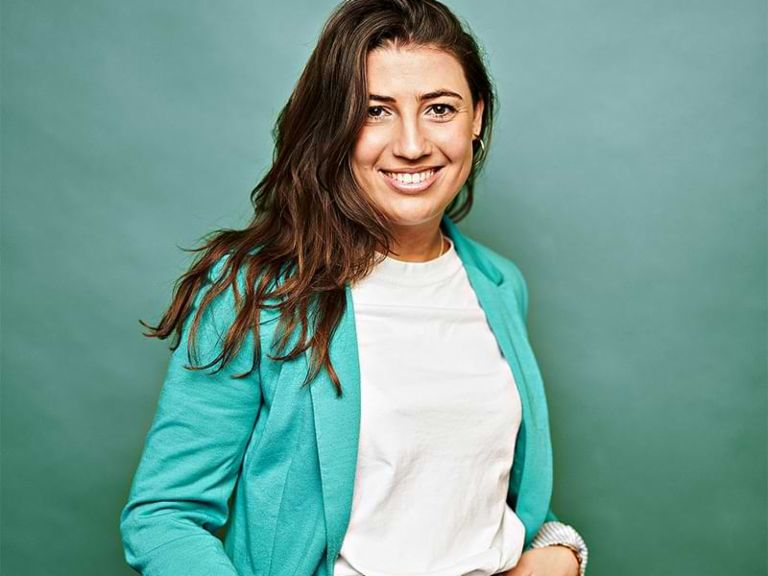
SARAH: EOS is represented in 26 countries. In our experience, there are no international ‘one-size-fits-all’ solutions. What do you think?
TIJEN: Naturally, the first things a group of companies needs are a big vision and shared values. However, especially when it comes to diversity, overarching strategies are inappropriate. In Germany, for example, gender stereotypes are still deeply embedded, which affects the ability to reconcile family and working life. Therefore, I would also take a country-specific approach and ask what employees in each country need to get them enthusiastic about diversity.
ROXANA: Apart from gender and sexual orientation, diversity also includes factors like religion, race/ethnicity, age, and social status. Does each of these communities need its own network?
TIJEN: Individual groups should promote their concerns from a grassroots level. At the same time, diversity needs to be a matter for top management, because human resources and budgets need to be allocated to it. Ideally, a separate position should be created for a diversity manager reporting directly to the board, which is what has happened at the Talanx Group.
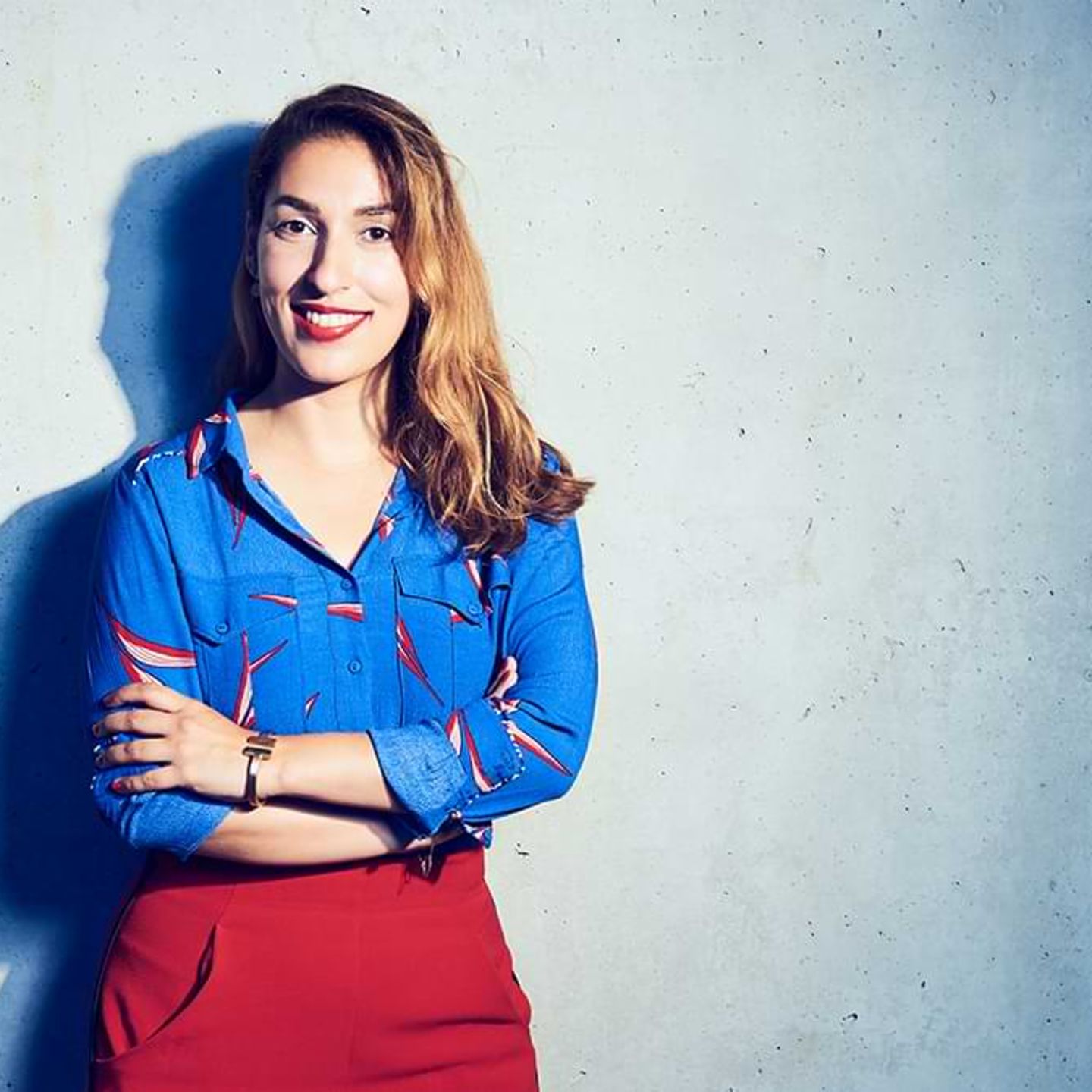
“Diversity is not a project that’s finished when you reach certain numbers, but a lifelong work in progress.”
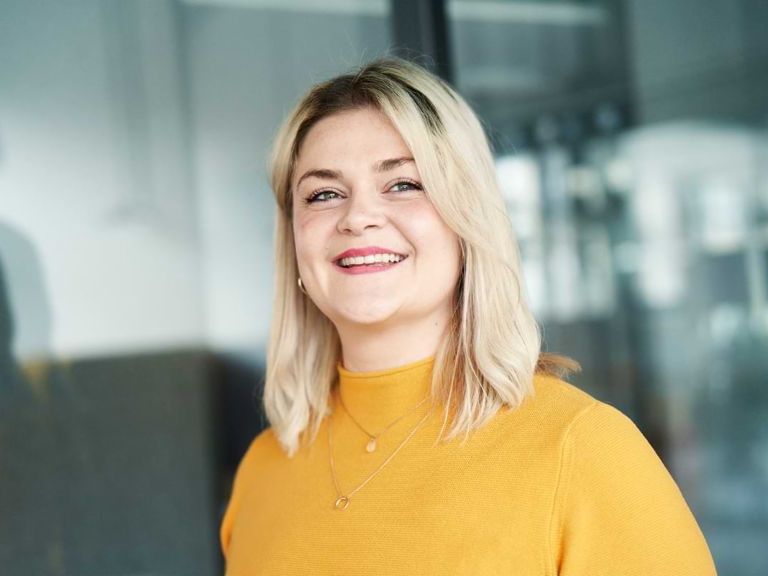
ROXANA: How do you get managers at all levels on board?
TIJEN: Diversity targets can be incorporated into bonus payment arrangements, like Accenture has done, for example. The performance of managers is assessed based on whether they have reached certain targets for ‘diversity and inclusion’. Funnily enough, that changes a lot! This may be a sad state of affairs, but we need to use all tools at our disposal to achieve our goals. Many managers do realize that diversity makes their departments more competitive. And the rest ask themselves at some point why nobody wants to join their teams. It could be because of the absence of an inclusive decision-making culture. These are the kinds of questions that can be readily clarified with the help of questionnaires.
SARAH: In the case of W:isible and Queer@EOS we are naturally not just focusing on the top of the hierarchy but also want to get our colleagues at the lower echelons on board in good time. How do you create the broadest possible appreciation of diversity?
TIJEN: The most important thing is to make diversity tangible. A philosophical lecture about unconscious bias won’t reach most people. Instead, you need specific stories about how individuals benefit personally from a diverse environment. Ideally you invite speakers to your company who have already experienced these “light bulb moments” and may even work in a similar role. The power of a network is also to address fears openly. A lot of men, when they hear words like ‘diversity’ or ‘quota’, think they are going to be weeded out in favor of young, inexperienced women. But that’s not how it works. If you set diversity targets today you are paving the way to a more inclusive culture tomorrow. The biggest killer is an inability to communicate.
SARAH: So you’d recommend taking less of an abstract approach and focusing more on personal experiences?
TIJEN: Exactly. You need speakers that will describe specific examples of their unconscious bias. People then feel that this is something they can identify with, because they have had a similar experience to the speaker. The more relatable the topic, the more tangible it becomes. Asking questions like “What is it that you want for your daughters, sons, or sisters?” can also create a sense of connection. It might be more convenient if everyone has the same opinion, but this doesn’t allow you to grow as a person. Diversity, on the other hand, can be a powerful driver for your own creativity.
Are you looking for an open-minded and modern employer?
Welcome to EOS
Think debt collection is boring and dull? Not here! At EOS you can enjoy a diverse and open-minded corporate culture and a modern work environment, whether you are just starting out in your career or are an experienced manager.
ROXANA: We are living in an era of remote working and virtual team meetings. What do you think this means for diversity initiatives?
TIJEN: Everything has to be a lot more organized, because you don’t have the spontaneity of meetings at the water cooler. You need to have regular video meetings and other little routines on your network. Everyone needs to be able see one another, because experiencing how people react to what is being said is an important part of diversity. Using gender-neutral language is also a very important aspect, because studies have shown that young girls in particular are more likely to be interested e.g. in a career in law enforcement if the term ‘police officer’ is used rather than ‘policeman’. Language creates its own reality.
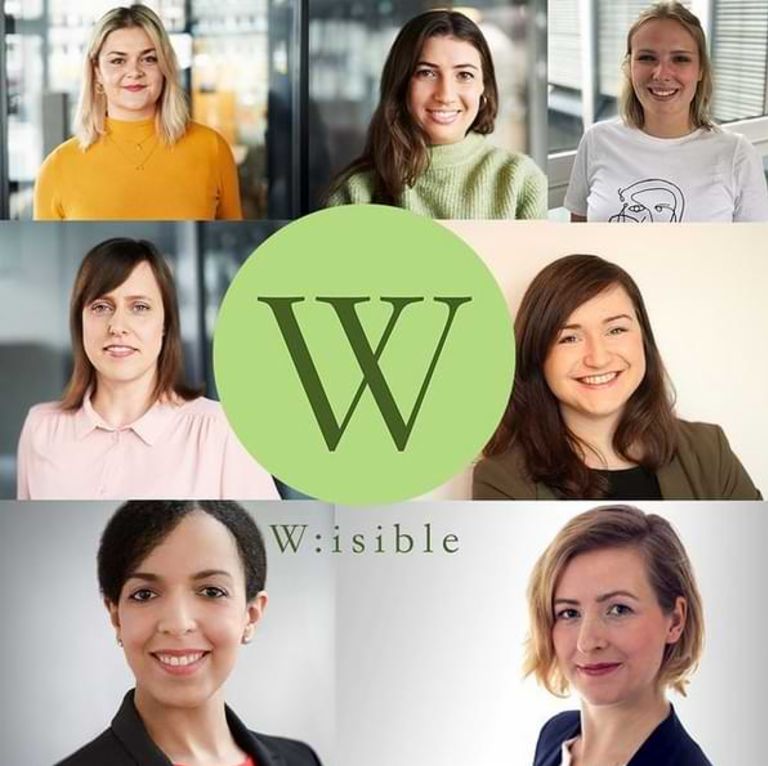
SARAH: When are our and your networks likely to become superfluous?
TIJEN: Diversity is not a project that’s finished once you have reached certain numbers but a lifelong work in progress. Sometimes you’ll still be establishing the framework and at others you’ll feel you are making a lot of headway. After all, a company doesn’t tick innovation off its to-do list just because it’s sometimes been innovative. As with the pressure to innovate, the pressure to create diversity can be a positive thing. We need continuous lobbying efforts, and the more the merrier. This is why initiatives like W:isible and Queer@EOS are so important. It’s how we pave the way so that the next generation doesn’t have to talk so much about quotas or gender.
Contact
Sabrina Ebeling
Corporate Communications & Marketing
Tél.: +49 40 2850-1480
Photo credits: Urban Zintel, Benne Ochs (2), EOS
Explorez davantage EOS

